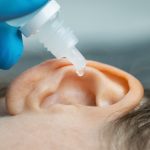Hearing loss can take a toll on your ear and affect your emotional health. As communication becomes more difficult, feelings of frustration, embarrassment, and even sadness may arise. These emotions are natural but can sometimes lead to withdrawing from social situations or activities you once loved.
It’s important to acknowledge these feelings rather than ignore them. When you realize that frustration is a normal response to hearing loss, you can start to focus on solutions rather than dwelling on the negative aspects. Your emotional health is just as important as managing the physical symptoms of hearing loss.
How to Cope With Communication Challenges
One of the most frustrating aspects of hearing loss is difficulty communicating with others. Misunderstandings, repeated requests for clarification, and strained conversations can leave you and your loved ones feeling exasperated. But there are ways to ease the burden of communication.
First, let others know about your hearing difficulties. Encourage them to speak clearly and face you when talking. Small adjustments, like reducing background noise or using visual cues during conversations, can make a significant difference. Don’t be afraid to ask for repeats or clarifications—clear communication benefits everyone involved.
Avoiding Social Withdrawal and Stay Connected
Hearing loss can sometimes lead to social isolation, as many people may start avoiding situations where hearing is difficult. While this is a natural reaction, it’s important to stay engaged with others. Social connections are vital for emotional well-being and can help reduce feelings of loneliness or frustration.
Instead of withdrawing, look for ways to adapt to social situations. For example, choose quieter environments for gatherings or let others know if you need assistance. You might also consider joining support groups or activities where others are experiencing similar challenges. Staying connected will not only help reduce your frustration but also ensure you maintain a fulfilling social life.
Hearing Aids and Assistive Listening Devices (ALDs)
Technology has made significant advancements in helping people with hearing loss. Hearing aids, for instance, are more discreet and effective than ever before. If you haven’t already explored the option of hearing aids, it’s worth discussing with a hearing health professional. These devices can significantly improve your hearing experience and reduce daily frustrations.
Beyond hearing aids, there are many assistive listening devices designed for specific needs. For example, amplified phones, TV listening systems, and even smartphone apps can help you hear better in certain situations. These tools are often simple to use and can greatly improve your quality of life, making communication and everyday activities less frustrating.
Self-Care and Stress Management
Dealing with hearing loss can be exhausting, both physically and emotionally. That’s why it’s important to take care of yourself during this process. Engaging in stress-relieving activities, such as meditation, yoga, or spending time in nature, can help balance your emotions and reduce the tension that often accompanies frustration.
Practicing self-care also means being patient with yourself. Hearing loss is a challenge, and it’s okay to feel frustrated at times. However, developing healthy ways to manage stress and staying proactive about your hearing care can make the journey easier.
Seeking Professional Support
Sometimes, dealing with hearing loss frustration requires more than just self-management. Seeking the help of a hearing health professional can provide you with personalized solutions and strategies for improving your hearing experience. Don’t hesitate to seek support; addressing the physical and emotional aspects of hearing loss will help you feel more empowered and less frustrated.






